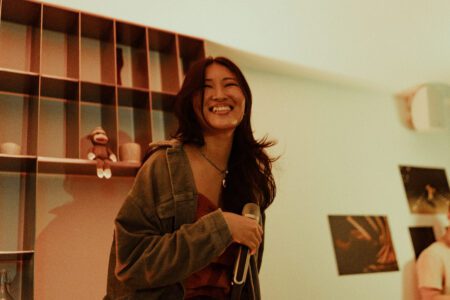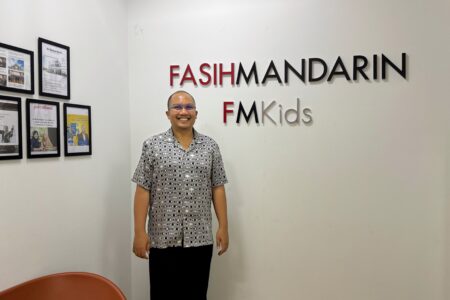
Being Malaysian is different when you’re at home, compared to when you’re abroad.
This is something that Zafran Rarang realised after spending around 10 years abroad in three countries.
Finding themselves in a foreign country, many Malaysians will naturally congregate and find community and comfort with one another. The same can probably be said about most immigrants, but for Malaysia, this is particularly noteworthy.
Being a multicultural and multiethnic nation, Malaysians tend to stay within their own bubble locally. Ask them about their identity, and they’d likely mention their ethnicity first, not nationality.
But once abroad, those labels tend to come off, leaving behind just one — Malaysian. Even those who have spent many years abroad would likely still proudly consider themselves as Malaysians. Then, they come home.
After the 2022 General Elections, it was found that the country is more polarised than ever along ethnic lines. Beyond race, a Malaysian minister even mentioned that the country is also divided along class and education lines, with social media amplifying hate speech. With this, differentiating one another through race and religion has become more important than coming together as a whole.
It seems like every now and again, a racially charged incident happens. In March 2025, MIXUE Malaysia was under fire for a discriminatory job ad, stating that they would only hire Chinese or Malay individuals. Last year, the term “Type C” was popularised when a fried chicken company used it as a derogatory reference to the Chinese Malaysians. Discrimination is also rampant when it comes to residential tenancy, with many Malaysians believing that landlords should be able to choose tenants based on race.
“We’re not as united as I thought,” Rarang noted when he came back to Malaysia.
With a hope to realise the romanticised script of Malaysia that is shown to the world in his own country, Rarang decided to start a platform called Malaysian Diaspora and recreate the feel of unity — or, perpaduan in Malay — online.
A global citizen
“Long story short, my origin story is that growing up, I moved around a lot,” Rarang says.
His parents’ jobs took them to different countries
Born in Kuala Lumpur, Rarang moved to Ho Chi Minh City in Vietnam as a young student, living there from 2004 to 2007. After coming back to Malaysia for a couple of years, he moved abroad to the United Arab Emirates in 2009. Another quick stint in Malaysia, and he was off to study communications science at the University of Amsterdam in the Netherlands in 2019.
Thanks to his upbringing, Rarang’s outlook of the world is very diverse. He finds that he’s able to see things from different contexts. His lifestyle has its downsides, of course, such as drifting apart from friends.
“But it’s definitely a privilege that I wouldn’t trade for anything else.”

Rarang studied Communication Science in Amsterdam. Source: Zafran Rarang
Connecting Malaysian diaspora everywhere
Malaysian Diaspora, which now boasts over 28,000 followers on Instagram and over 10,000 on TikTok, was created in 2024.
Through this platform, Rarang asks Malaysians at home and overseas everyday questions with the goal to show that regardless of race, religion, or political affiliation, we’re all the same. We all think the same thoughts, share the same struggles, have the same goals.
His content quickly took off and fell into a positive feedback loop. Wanting to make use of that momentum, Rarang made the bold decision to take a career break from his corporate marketing job. Now, it’s been 18 months since he quit his job to focus on Malaysian Diaspora alongside other freelance work.
“I would feel remiss to just give it up now,” he says.
As a one-man operation, Rarang runs the platform slowly but intentionally. Being rather perfectionistic, he’s interviewed exactly 180 people, but has only published 80 to 90 of those interviews.
His videos have led to clients, which not only helps to sustain his work, but is a direct testament to its impact.

Rarang is wearing his Baju Melayu, which is traditional Malay garb for men. Source: Zafran Rarang
From diaspora to local
Rarang has lived in countries across the world and spoken to Malaysian diaspora in numerous countries. Yet, he still chose to come back to his home country.
Salaries in other countries, due to the exchange rate, are better. Industries such as communications are also more developed and matured in many other nations. So, why did he return?
“This is not a knock to people who see things differently,” he prefaces. “But I’m of the opinion that as a Malaysian, especially for me as a Malay Malaysian, a part of the majority, I have a responsibility to try to make Malaysia better.
“Given the position and extra privilege that I have, in terms of my rights as a Malay, it would be unfair that I don’t use it for the benefit of Malaysia.”
Rarang recognises that his ideals sound rather heroic, but he admits that it’s not really all that grandiose. Ultimately, he just feels like he has a duty.
“And I have more of a chance to make a dent or difference here than somewhere else,” he adds.
But Rarang doesn’t prescribe his personal philosophy onto other people, such as the Malaysians he has interviewed who chose to stay abroad.
“I will never blame someone for chasing individual economic opportunities, no matter who they are,” he says. “I can’t call someone inherently selfish for wanting a better life.”
View this post on Instagram
What’s the point?
Ultimately, Malaysian Diaspora isn’t going to cause a massive revolution.
“I’m just one person. I’m not going to change the country, let’s be honest,” he says. “I’m just trying to make my own circle of influence to attract people into my bubble. To create a community for people who see Malaysia and relate to Malaysia in the way that I do.”
Instead of changing people’s minds, he just wants people of all walks to come together and be a good neighbour to one another.
Having been privileged enough to see and experience the world, Rarang knows it’s hard to point fingers at the more closeminded Malaysians who might not have had the same opportunities as he had.
“I cannot blame someone for their world view if the opportunity to expand their worldview just wasn’t there,” he says. “Who you are and your views are deeply shaped by your environment.”
But through his platform, he might just be able to make the world a little bit closer to these people.
With Malaysian Diaspora, Rarang brings a little piece of the world to Malaysia, and a piece of Malaysia to the world.










